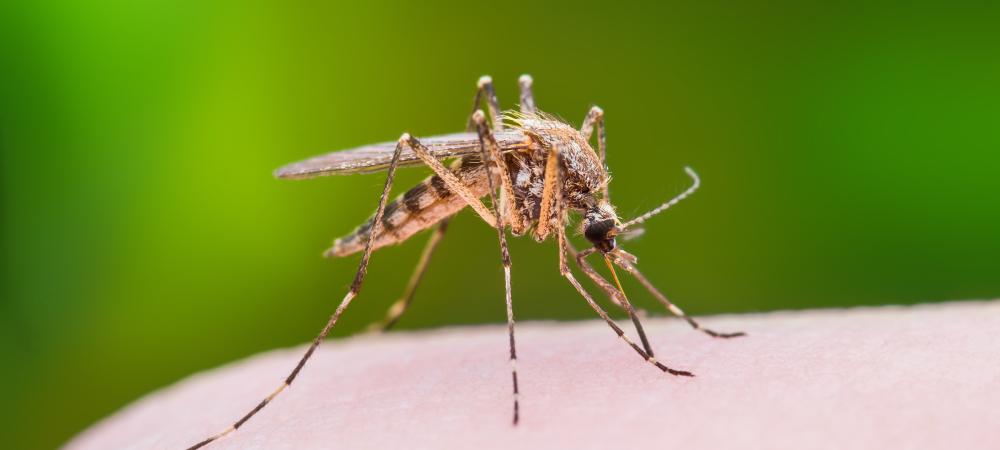Why Mosquito Control is a Growing Priority for Families Across the U.S. in 2025

Mosquito control isn’t just about avoiding itchy bites anymore; in 2025, it’s becoming a critical health measure for families across Georgia. Longer warm seasons and high humidity are creating ideal breeding conditions for mosquitoes, allowing them to stay active for longer periods. This surge is more than an inconvenience; it’s increasing the spread of mosquito-borne illnesses that can affect children, adults, and even pets.
The University of Georgia Extension stresses that simple at-home prevention, such as removing standing water, can drastically reduce mosquito populations. Meanwhile, Saline Memorial Hospital reports that a single infected mosquito is enough to transmit serious diseases, underscoring the need for a consistent prevention plan.
What’s Behind the Rise in Mosquito Problems in the United States?
In 2025, much of the United States is seeing longer mosquito seasons than ever before. Warmer winters, humid springs, and extended summer heat are allowing mosquitoes to breed earlier and survive well into the fall. According to the CDC, higher temperatures speed up the mosquito life cycle, meaning mosquitoes reproduce faster and more biting adults are active for longer periods.
While mosquito problems are worsening nationwide, Georgia faces especially high pressure. Several key factors are driving this surge:
- Warmer, Longer Seasons: Climate shifts are producing milder winters and longer summers, allowing mosquitoes to breed for more months each year. Harvard research projects the mosquito season could extend by up to two months by 2050 due to earlier springs and warmer falls. More heat and more standing water mean more mosquitoes and more bites, year after year.
- Growing Disease Threats: Mosquitoes are often called the world’s most dangerous animals because they spread serious viruses. The CDC warns that without improved mosquito control, outbreaks of diseases like West Nile virus and Zika could become more common in the U.S. Over the past decade, cases have surged nationwide, especially in southern states. In 2024 alone, the CDC reported 1,466 U.S. cases of West Nile virus
- New Mosquito Species: Invasive species like Aedes aegypti (yellow fever mosquito) and Aedes albopictus (Asian tiger mosquito) are expanding into the U.S. South. These aggressive, daytime biters can transmit Zika, dengue, chikungunya, and other tropical illnesses, diseases that were once rare in U.S. communities. Their arrival has parents on high alert to protect their kids from unfamiliar health threats.
- More Outdoor Family Time: Post-pandemic lifestyles have families spending more time in backyards, parks, and patios. But nothing ruins an evening faster than a swarm of mosquitoes. With outdoor recreation on the rise, homeowners increasingly see mosquito control as a necessity rather than a luxury. Parents, in particular, rank mosquito prevention highly to safeguard children and pets from bites and allergic reactions.
- Georgia’s High Mosquito Pressure: Georgia consistently ranks among the top five states for mosquito activity, thanks to warm, humid conditions that stretch mosquito season from spring through late fall. West Nile virus activity is reported every summer, making local mosquito control a critical health measure. Mosquitoes won’t disappear on their own; reducing their impact requires consistent prevention and control.
How to Reduce Mosquitoes in Your Yard (Step-by-Step)
The CDC recommends an Integrated Mosquito Management (IMM) approach, combining habitat reduction, biological controls, barriers, and targeted treatments to break the mosquito life cycle and keep populations low.
Here’s a step-by-step plan for putting IMM into action in your own yard:
-
Eliminate Standing Water: Dump or refresh water in gutters, pots, birdbaths, toys, tarps, and drains at least once a week. Even small amounts can breed hundreds of mosquitoes.
-
Clean Up and Trim Foliage: Keep grass short, prune shrubs, and clear leaf litter to remove shady, humid resting spots.
-
Treat Unavoidable Water Sources: For ponds, rain barrels, or fountains, use safe BTI-based larvicides that kill mosquito larvae without harming people, pets, or wildlife.
-
Use Physical Barriers: Repair window and door screens, use outdoor fans on patios, and consider netting for strollers or outdoor seating during high activity periods.
-
Apply Targeted Yard Treatments: Use EPA-approved sprays on the undersides of leaves, shaded shrubs, and other mosquito hideouts. For best results, consider a professional application.
When these steps are combined as part of an Integrated Mosquito Management plan, you’re reducing breeding areas, limiting resting spots, blocking entry to your home, and knocking down adult populations. It’s a complete, environmentally conscious strategy that keeps mosquito numbers low while protecting your family’s outdoor lifestyle.
When DIY Isn’t Enough: Call a Mosquito Specialist
While DIY prevention goes a long way, there are times when bringing in professionals is the smartest move to protect your family. Here are clear signs it’s time to call in a mosquito control service:
- Heavy Infestations: If you’re swarmed within seconds of stepping outside or see clouds of mosquitoes at dusk, it’s time for professional treatment. Experts can quickly knock down large populations with specialized equipment and targeted products.
- Disease Risks in Your Area: Watch for local health department alerts on West Nile virus or other mosquito-borne illnesses. When positive mosquito pools or human cases are reported, professionals can respond with targeted fogging and larviciding to reduce the risk.
- DIY Efforts Aren’t Enough: If you’ve removed water, trimmed vegetation, and sprayed but mosquitoes persist, a professional can find hidden breeding spots and apply more effective treatments.
- Large Properties or Events: Big yards, wooded lots, and nearby ponds often produce more mosquitoes than DIY measures can control. A one-time treatment before outdoor events like weddings or reunions keeps guests comfortable.
- Protecting Children and Pets: Recurring treatments offer extra protection for families. Mosquitoes can transmit heartworm to dogs and cause itchy, infected bites in kids.
While DIY steps help, our mosquito control specialists go further. We inspect for hidden breeding sites, treat standing water with larvicides, and provide expert recommendations, so your property stays less inviting to mosquitoes.
If you’re noticing more bites, seeing mosquitoes even in the daytime, or feeling like your yard is off-limits during warm months, it’s time to let us step in. A mosquito-free outdoor space is often more affordable than you might expect, and the comfort, safety, and protection your family gains make it well worth the investment.
Effective Mosquito Control in Georgia
When it comes to keeping mosquitoes out of your yard, professional prevention and treatment make all the difference. Our mosquito control program delivers consistent, targeted applications for most residential lawns, with customized pricing based on property size. We inspect for breeding sites, apply proven treatments, and give you clear recommendations so you can enjoy a bite-free summer. Don’t let mosquitoes keep you indoors. Learn more about our mosquito control service in Georgia and request your first application today.
How often should mosquito control treatments be done?
Most effective programs include recurring treatments every 3–4 weeks during mosquito season to keep populations consistently low.
How much does professional mosquito control cost?
Pricing varies, but our mosquito control service in Georgia is just $70 per application for any yard size, making it affordable for families who want consistent protection.
When are mosquitoes most active?
Mosquitoes are usually most active at dawn and dusk, but some species, like the Asian tiger mosquito, will bite during the day. Warm, humid weather increases activity.
What attracts mosquitoes to people?
They are attracted to carbon dioxide from breathing, body heat, sweat, and certain scents. Dark-colored clothing can also make you a bigger target.
Can mosquitoes bite through clothing?
Yes. Thin or tight fabrics can be penetrated by a mosquito’s proboscis. Loose, light-colored clothing offers better protection.
How far can mosquitoes travel?
Most stay within a few hundred feet of their breeding site, but certain species can travel several miles.
Do all mosquitoes bite humans?
Only female mosquitoes bite because they need blood to produce eggs. Males feed on nectar and plant juices.
How long do mosquitoes live?
The average lifespan is 2–4 weeks, depending on species, temperature, and environment.
Can mosquito bites make you sick?
Yes. They can transmit diseases such as West Nile virus, Zika virus, and dengue. They also transmit heartworm to pets.



